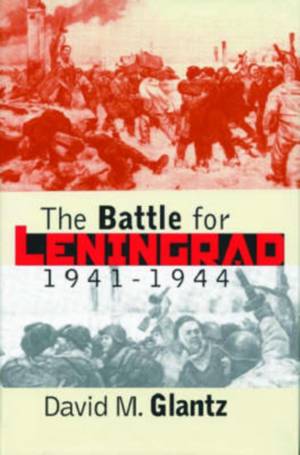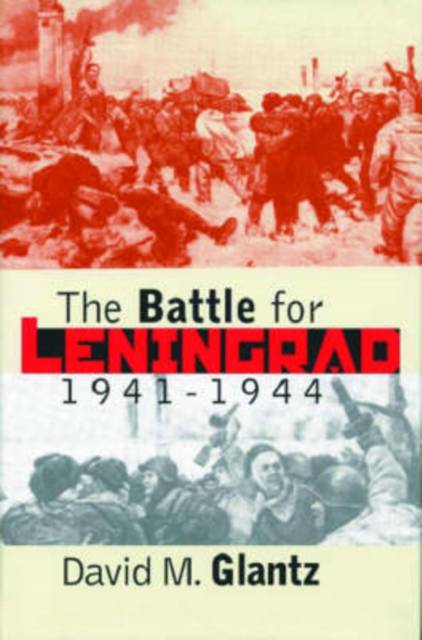
- Retrait gratuit dans votre magasin Club
- 7.000.000 titres dans notre catalogue
- Payer en toute sécurité
- Toujours un magasin près de chez vous
- Retrait gratuit dans votre magasin Club
- 7.000.0000 titres dans notre catalogue
- Payer en toute sécurité
- Toujours un magasin près de chez vous
101,95 €
+ 203 points
Description
The German siege and Soviet defense of Leningrad in World War II was an epic struggle in an epic war, a drama of heroism and human misery unmatched in the annals of modern warfare. While innumerable writers have dealt at length with the besieged city itself, David Glantz provides for the first time the definitive military history of the conflict waged beyond the city's borders. One of the first major Soviet cities threatened by the German blitzkrieg, Leningrad was as much a symbolic target as it was a strategic one for Adolf Hitler, who fully expected the birthplace of the Russian Revolution to be reduced to rubble quickly and with ease. The Red Army's ferocious defense of the city, however, made that impossible. Glantz digs deep to recount the full story of how these two military giants bludgeoned each other for nearly three years with a relentless barrage of offensives and counter-offensives designed to crush one another, in horrendous weather and a harsh terrain and with staggering loss of life on both sides. His richly detailed history shows how battles and campaigns were conceived, engaged, and resolved--including a half dozen or more "forgotten battles" that took place during the blockade. From a crazy quilt of military operations, Glantz reconstructs the border battles of June and July 1941; the little-known battles to liberate southern Leningrad oblast, including the battles for Luga, Narva, Pskov, and Ostrov; and the liberation of northern Leningrad oblast, comprising the Vyborg operation and failed attempts to invade Finland. He explains how these battles shaped the struggle for Leningrad and how they impacted other theaters of operation along the Eastern Front, eventually forcing the Germans into their long and costly retreat back toward Berlin. Glantz also provides insights into conditions within the city, adding new details to the horrors of the siege; sheds new light on partisan warfare in the countryside surrounding Leningrad; and corrects errors found in earlier works, revealing among other things the fate of those Soviet commanders who were purged or repressed because of their poor performance in battle. Based on an unparalleled access to Russian archival sources and going far beyond the military aspects of such renowned works as Harrison Salisbury's 900 Days, Glantz's book is a testament to the nearly two million Russians who lost their lives during the Leningrad conflict and confirms his status as the preeminent authority on the Russian military experience in World War II.
Spécifications
Parties prenantes
- Auteur(s) :
- Editeur:
Contenu
- Nombre de pages :
- 684
- Langue:
- Anglais
- Collection :
Caractéristiques
- EAN:
- 9780700612086
- Date de parution :
- 25-11-02
- Format:
- Livre relié
- Format numérique:
- Genaaid
- Dimensions :
- 162 mm x 233 mm
- Poids :
- 1224 g

Les avis
Nous publions uniquement les avis qui respectent les conditions requises. Consultez nos conditions pour les avis.






